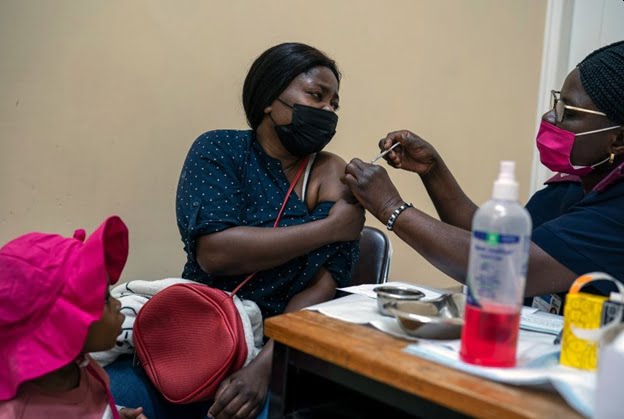Its been approximately a year since the first non-trial COVID-19 vaccine was given to an ICU nurse in New York City. The injection was met with a lot of fanfare and then a robust of the vaccine rolled out across the United States and Europe. Despite easy access to the vaccine and incentives to receive the immunization, there has been less than expected acceptance of the protective shot. There has also been vaccine inequity. While nearly 85% of the people in the UK are vaccinated, just 6% of Africa’s 1.2 billion people have received 2-doses of the RNA shots.

The World is Now in a Waiting Period Again
In November, the South African government saw a new variant of the COVID-19 virus and alerted the world of a potential 4th wave. The heavily mutated virus had changed enough for the WHO to name the new variant Omicron. The new variant is rapidly becoming the dominant variant in South Africa. According to the National Institute of Communicable Diseases in South Africa, 74% of the sequenced viruses genomes belong to the new variant of the virus. The world was lucky that the South African’s were very good at sequencing and could find the new variant so quickly. Some researchers believe the new variant formed in early October. Unfortunately, South Africa and seven other African countries received travel bans from many OECD countries for their efforts. These bans have not proven to be successful in the past. The virus will find a way to move from country to country despite the prohibitions. What the travel bans can do is reduce scientific cooperation and knowledge sharing.
How is Omnicron Spreading?
Dr. Scott Gotlieb believes the spread of the virus in South Africa is coming within the unvaccinated. The Dr. sites the spread of the Omnicron variant amongst young people who are likely unvaccinated. The spread of the virus in a country where vaccination rates are low, do not give a clear view of how the new variant will spread in the United States and Europe. There are multiple questions that administrations in OECD countries face. Can the new variant withstand the current vaccines? Are the travel bans working, or are they just temporary measures to give scientists time to see if the vaccines work? Does the third dose of the RNA vaccines make a difference relative to those who do not have a booster shot?
Are the Travel Bans Necessary?
Officials in the United States say the travel bans are a temporary measure. These travel restrictions will provide the necessary time to study the new variant and determine if the current vaccines work. It will also give the United States time to roll out the oral drugs that have been developed.
Why are the Vaccine Rates in Africa So Low?
For the vaccines to work and the oral drugs to be effective, they must be available worldwide. Unfortunately, there does not seem to be robust cooperation between the manufacturers of vaccines and low-income countries. Pfizer CEO Albert Bourla claims that the hesitancy in low-income countries is much higher than in developed countries such as those in Europe, Japan, and the United States. Despite the claims that CEOs have focused on wealthier nations, the share trading in companies like Pfizer and Moderna has been mixed. While a diverse company like Pfizer has seen shares move sideways, the single focus of Moderna on COVID has driven returns based on the perceived demand for a COVID vaccine.
The Bottom Line
The upshot is that a new variant has appeared, which should not be a surprise. Until the vaccines are widely accepted around the globe, the virus will find a home and mutate. Africa has become a breeding ground with only 6% of the population “fully” vaccinated. Until vaccines are widely accepted and there are enough vaccines to go to all countries around the globe, the virus will continue to mutate. The acceptance of the vaccines come with education. People need to know the facts and, in many cases, need time. More education will likely go a long way toward acceptance. The last step will be to provide enough low cost RNA vaccines to achieve immunity.



